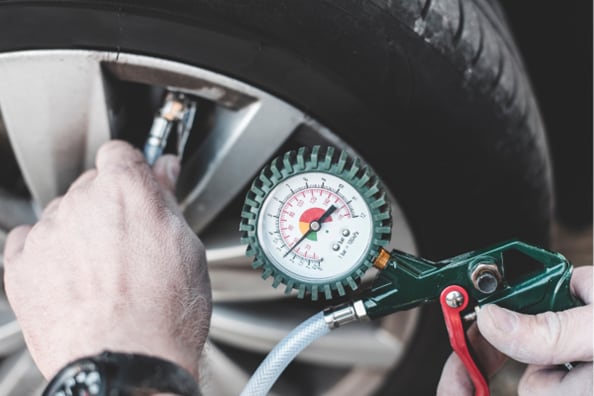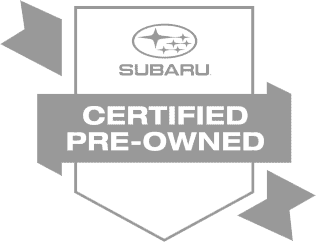

Piazza Subaru wants to help you stay safe while on the road. Our team is always ready to answer any automotive questions you may have. So when you’re in the market for a new Subaru in Chester County, PA, browse our vehicle selection online or call one of our knowledgeable sales representatives.
How Often Should I Check My Car’s Tire Pressure?
Tire Pressure Monitoring Systems (TPMS) have provided safety and convenience since they became mandatory for all new vehicles in 2007. The TPMS light will activate on your dashboard when one or more of your car’s tires is significantly low on air. The light alerts you when one or more tires are losing air due to a puncture, slow leak, or another issue.
Generally, we recommend you check your tires at least once a month to monitor their air pressure. Don’t wait until your tire pressure light comes on. Instead, closely watch your tires to keep their air pressure at an appropriate level.
Why Does Cold Air Deflate My Tires?
When temperatures outside drop in the fall and winter, the air inside your tires condenses. Tires can lose about 1 PSI (pounds per square inch) for every 10 degrees of temperature drop. When temperatures drop significantly, this can add up to a considerable loss of air pressure in your tires. These fluctuations are the main reason your car tire pressure is lower in winter.
Other Reasons Your Tire Pressure May Be Low
Aside from colder weather, there are several other reasons your tire pressure may be low. Common issues affecting your tires include a tire puncture, neglecting to add air, or a tire pressure sensor issue.
Tire Puncture
You may have low tire pressure because you have a puncture. Nails, screws, and other road debris can pierce your tire while driving, leading to flat or underinflated tires.
If your tire has low pressure and you suspect it may have a puncture, inspect your tire’s tread and sidewall. If you can’t locate a specific problem, contact a mobile tire technician for a more thorough inspection.
Neglecting to Add Air to Tires
Using a tire pressure gauge to check your tire pressure is an often overlooked aspect of vehicle maintenance. Underinflated tires can lead to an accident, as they are dangerous to drive on. Many service stations offer free air so that you can add air to your tires through each valve stem on the wheels.
Furthermore, driving on underinflated tires can hurt your car’s fuel economy. These factors are why tire inflation is essential routine maintenance for your car. Most passenger vehicles come with a tire pressure recommendation of 30 to 35 PSI. However, we recommend you check your owner’s manual to get the exact specifications for your car.
Tire Pressure Sensor Issue
A problem with your car’s tire pressure sensor isn’t common, but it may still occur. If you believe this is the cause of your tire pressure issue, contact our service department to schedule a check on your car. A trained technician can fix the problem so you receive an accurate reading of your vehicle’s tire pressure.
Get Your Tires Checked or Replaced Today!
Don't take any chances if you suspect an issue with your car’s tires. Instead, schedule an appointment with our service department to get them checked or replaced. If you aren’t sure why your vehicle's tire pressure is lower in winter, we can diagnose the problem and make the necessary repairs.
The certified technicians at Piazza Subaru of Limerick can perform all service repairs on your vehicle. Whether you need to schedule routine maintenance or are interested in our current Subaru financing offers, contact us today!




